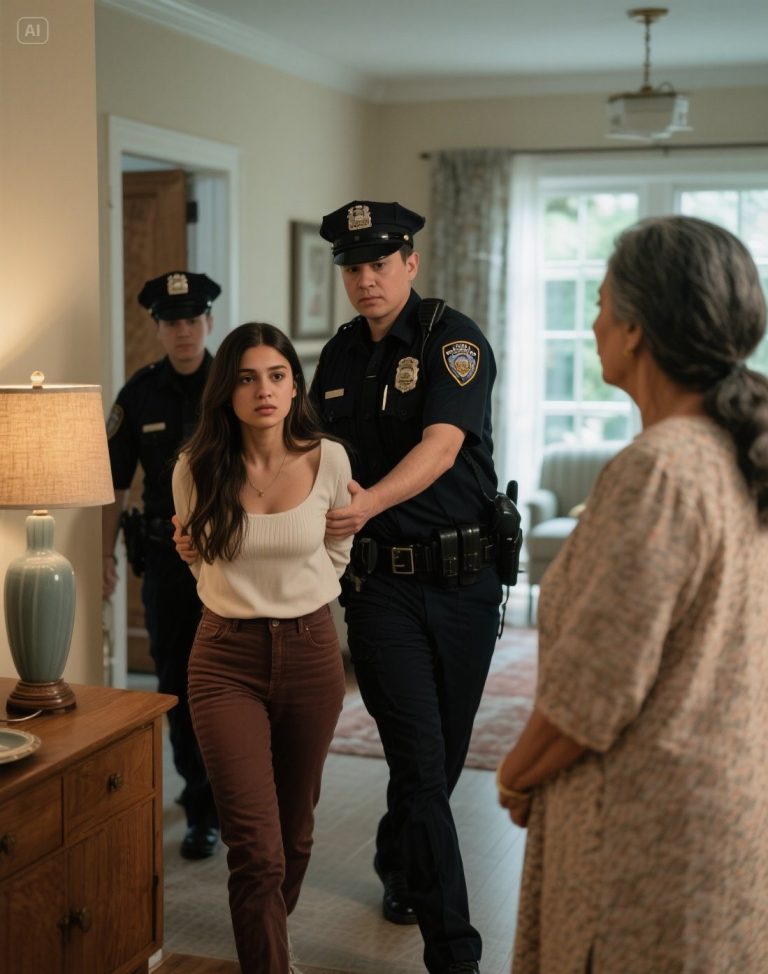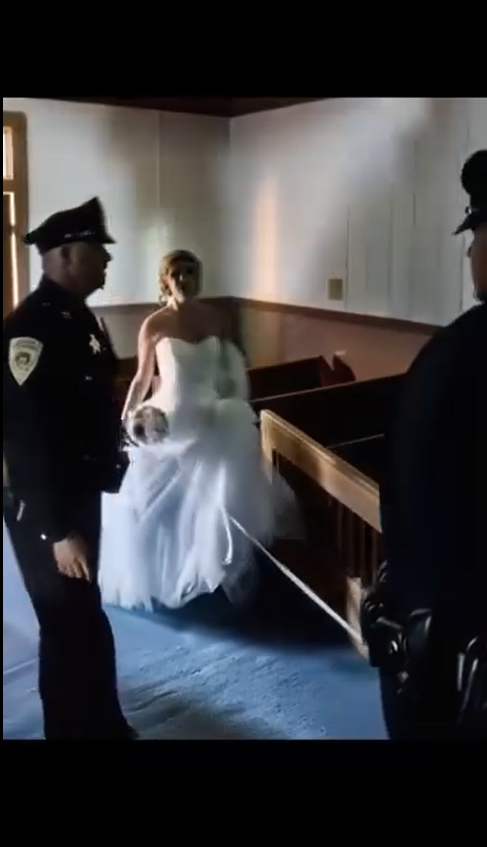The phone went to voicemail for the third time in two days. That was when I knew—something was terribly wrong.
Ethan always answered my calls. Always. Even when he was swamped with work. Even when his wife, Clara, sighed impatiently in the background.
The thing about being a mother is that you don’t need proof to know something’s wrong. You feel it—deep in your bones. Call it instinct, intuition, or that strange sixth sense that motherhood gives you. And for weeks, I’d felt it growing stronger, like a storm brewing on the horizon.
My name is Margaret Hale, and I’m sixty-seven years old. Three months ago, the biggest decision in my life was whether to plant peonies or lavender in the front garden. Now, I couldn’t even remember the last time I’d slept through the night.
It started with fewer phone calls. Then, missed dinners. Ethan had always been reliable—steady, predictable, my late husband’s mirror in that way. But after marrying Clara Jennings in that whirlwind May wedding, everything changed.
“Mom, Clara thinks we should set some boundaries,” he’d said during our last real conversation two weeks ago. His voice had sounded… thinner. Careful. “We’re trying to build our own routines.”
Boundaries. That was her word for building walls around him—and shutting me out.
When my calls went unanswered again, I tried his office line.
“Hale Engineering, this is Megan,” a bright young voice chirped through the receiver.
“Hi, this is Margaret Hale, Ethan’s mother. May I speak with him?”
A pause. “Mrs. Hale… I’m so sorry, but Ethan hasn’t been in for over a week. We thought he was on vacation.”
Vacation. My son, who planned every hour of his life, on an unannounced vacation?
“Did he leave a message? An email?”
“No, ma’am. Actually, we’ve been trying to reach him too.”
My heart dropped. One week gone, and I hadn’t known. What kind of mother doesn’t know where her child is? The answer was simple—the kind whose son had married a woman who specialized in erasing connections.
Clara had seemed perfect when Ethan first brought her home last winter. She was polite, poised, effortlessly charming. She’d complimented my cooking, admired my roses, even helped clear the table.
“She’s too perfect,” my neighbor Helen whispered afterward. “That kind of woman’s rehearsed, not real.”
I’d laughed it off. My son looked happy, and that was all that mattered—or so I told myself. When they announced their engagement after just eight weeks, I smiled through my unease. When Clara insisted on a small, private wedding, I agreed. I wanted to believe she loved him as much as I did.
But now, as I sat alone with a silent phone and a growing dread, I realized Helen had been right. Clara had been performing. And now, I was beginning to see the final act.
The call came at 6:42 a.m. on a cold Tuesday morning. Clara’s name flashed on the screen.
“Margaret,” she said when I answered. Her voice was flat. “It’s about Ethan.”
“Thank God,” I breathed. “I’ve been trying to reach you both for days. Where is he?”
A long pause. Then—
“Ethan’s gone. There was a car accident on Highway 14 three days ago.”
The phone slipped from my hand, clattering onto the kitchen floor. Gone. My son. My Ethan.
“Clara,” I gasped, fumbling to pick it up. “When is the funeral? I’ll fly to Arizona today—I’ll—”
“The service was yesterday,” she interrupted. “Close family only. It was what Ethan wanted.”
Yesterday. My son had been buried yesterday, and I hadn’t even known.
“What do you mean ‘close family’? I’m his mother!”
“Margaret, I understand this is difficult,” she said coldly. “But Ethan and I discussed this. He wanted it kept small.”
Discussed his own funeral? That wasn’t my son speaking. That was her.
“Clara, please. How did it happen? Was he—”
“I have to go. I’ll call when I’m ready to talk.”
The line went dead.
For days, I called again and again. Straight to voicemail. Finally, in desperation, I reached out to the Arizona State Police, the county coroner, anyone who would listen.
“Ma’am,” the clerk said gently, “there’s no record of an Ethan Hale in a fatal crash on Highway 14 that week.”
No record. No body. No report.
Which meant one of two things: Clara was lying about how my son died—or lying about him being dead at all.
I booked a flight that night.
Their house in Scottsdale was pristine, almost sterile. Her white BMW gleamed in the driveway. She opened the door, surprised but composed, dressed in a black sundress and sunglasses.
“Margaret,” she said coolly. “You shouldn’t be here.”
“I came to see where my son lived. Where he—” My voice broke. “Where he died.”
She glanced toward the neighbors, her smile brittle. “You can’t just show up like this. I’m still processing.”
“Processing?” I snapped. “You sound like you’re reviewing tax documents, not mourning your husband.”
“I’ve already donated his things,” she said flatly. “It was too painful.”
Donated. A week after his supposed death. My grief turned to fury. “Show me the death certificate.”
“I don’t have to. You’re not next of kin.”
I stared at her, my voice trembling. “Not next of kin? I gave birth to him.”
She didn’t flinch. “We updated the paperwork after we married. It’s what couples do.”
That night, I drove to Rosehill Cemetery, where she claimed Ethan was buried. The groundskeeper pointed me to section F, plot 219. “Just laid last week,” he said.
But when I got there, the ground was untouched. The marker was temporary, freshly placed—but the soil beneath was firm. Undisturbed.
In the office, the director frowned at his screen. “The plot was purchased last Tuesday, Mrs. Hale—but there’s been no burial.”
A “pre-need” arrangement. Purchased before death. My stomach dropped.
I returned to Clara’s house. Through the window, I saw a suitcase by the door. Packed. Ready. She wasn’t grieving—she was leaving.
The next day, I watched as she loaded the suitcase into her BMW and drove to a storage facility called LockSafe. She entered unit 219—the same number as Ethan’s plot.
Thirty minutes later, she left empty-handed.
I followed her to the airport. “Excuse me,” I told the ticket agent. “That woman—Clara Hale—she dropped something. Could you tell me what flight she’s on?”
“She’s on flight 642 to Portland, Oregon.”
My hometown.
But she never boarded that plane. Somewhere between security and the gate, she vanished.
When Detective Morales called the next morning, his voice was grave. “Mrs. Hale, we searched that storage unit. You need to come back.”
The evidence table made my knees buckle. Ethan’s wallet. His watch. His college ring. And a file filled with aliases: marriage certificates, death records, insurance claims—all tied to one woman.
“Her real name’s Lydia Ward,” Morales said grimly. “She’s had four husbands. Three dead under suspicious circumstances. Your son was next.”
I swallowed hard. “Is he…?”
His silence told me everything.
“Poison,” he said finally. “Ricin. Slow, undetectable.”
I sank into the chair. “She killed him.”
“Yes. But because of your persistence, she won’t hurt anyone else.”
Three weeks after Ethan’s real funeral, I was in a café in downtown Portland when I saw her. Lydia Ward. Hair dyed chestnut. Glasses. But the same calculated smile.
“Detective Morales,” I whispered into my phone. “She’s here. At Pioneer Square.”
Before the police arrived, she disappeared again—this time into the crowds. But she’d made a mistake. She was still in Portland.
At 3 a.m., my alarm shrieked. Someone had broken into my house. When the police came, she was gone. On the kitchen table, she’d left Ethan’s college ring—the same one they’d buried with him.
This wasn’t over.
I turned to Helen, my old neighbor. “We need to think like her.”
We studied Lydia’s past victims. Wealthy. Lonely. Recently widowed.
Then we found her next target: Robert Tran, fifty-eight, a businessman whose wife had died six months earlier. On his social media, she’d already appeared—under the name Rebecca Lang.
With police help, we set a trap. Robert agreed to cooperate. Hidden microphones, surveillance vans, everything.
When she finally moved to strike—poisoned food, again—the officers stormed in.
“You set me up,” she hissed as they handcuffed her.
“You set yourself up,” Detective Morales said. “Lydia Ward, you’re under arrest for the murder of Ethan Hale.”
As they led her away, her eyes met mine—cold, then, for the first time, afraid.
The trial lasted six weeks. I attended every day. When it came time for sentencing, I stood to speak.
“Your Honor,” I said, “this woman didn’t just take my son’s life. She took his future—and mine with it. But I promised him I wouldn’t let her win. And I haven’t.”
Lydia Ward was sentenced to life in prison without parole.
Six months later, the Portland Cold Case Unit called. They’d found evidence linking her to four more victims—and asked me to join as a consultant.
A year ago, I was a retired teacher. Now, I was helping catch predators.
On the first anniversary of Ethan’s death, I visited his grave. The stone read:
Ethan Hale — Beloved Son. Loved Forever.
She had taken my son, but she’d also given me a purpose—one I never asked for, but one I’ll never abandon.
Because a mother’s love doesn’t end at loss. It turns into fire.
And fire, once lit, never dies.




